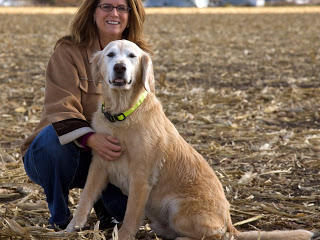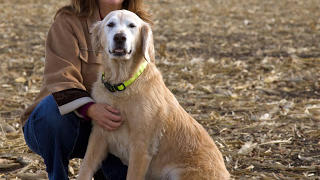
Ask the Expert: Dr. Marcie Campion on Doggie Dilemmas

We asked Dr. Marcie Campion, veterinarian at Eukanuba, for her expert advice on caring for your four-legged family members.
What’s the best way to tote food and water to the beach for my dog and how do I make sure he’s eating and drinking enough during a really active day in the sun? -Joe T., San Diego, CA
The beach is a great place for both you and your dog to play! Use a small, plastic container with a resealable lid for his food to keep the sand out and double as a food bowl. A portable size that can hold a day’s worth of food for your dog is best and will keep it from spilling. All Eukanuba dog foods are naturally preserved and will stay fresh all day long at the beach. For water, bring a second large, plastic, resealable bowl for your dog’s water. Before you leave home, fill it full of ice cubes and seal it. At the beach, the cubes will melt and provide a cool, fresh source of water. You should also carry several spare bottles of fresh water for both you and the dog to help keep cool. Make sure you have enough fresh water so your dog isn’t tempted to drink the ocean water. Drinking too much ocean water can lead to diarrhea and a long trip home in the car for both you and your dog. Keep the bowl full of water and he can drink as much as he needs during the day after playing with you.
How do I know when my dog is ready for a change in feeding schedule? Do I judge only by age and breed or are there other signs? -Jennifer M., Boise, ID
Different breeds of dogs age at different rates and it’s important to “know” your dog’s age and understand that their nutritional needs change with life stage and life style. The three life stages to be aware of are Puppy (up to 12 months for small and medium breeds; 18 to 24 months for large and giant breeds), Adult (up to 7 yrs for small and medium breeds; 5 to 7 years for giant and large breeds), and Senior (typically 5 to 7 years). Each one of these should trigger a change in pet food due to the changes that occur during each of these life stages. Most pet foods are clearly marked on the front as to the life stage and age of dog that should be eating the product.
Other things that may trigger a pet food change are lifestyle. Sedentary or overweight dogs or dogs with health issues like sensitive digestion or skin and coat may require a diet change. If a pet is overweight, choosing a food that is lower in fat and calories and feeding it in 2 to 3 meals over the day would be best. Increasing their exercise by tossing the kibbles of food for them to chase is also a way to help them lose weight and get back into shape! A highly active dog would also require a change in pet food to something that had a higher concentration of nutrition and you may choose to only feed one meal a day after they have exercised. Running with a full stomach may be a factor in developing a condition called “bloat” in large and giant breed dogs, which can be dangerous. This is why feeding them after their exercise and cool down period is a better idea. Eukanuba dog food has a wide variety of super-premium pet food products to meet every dog’s need and “fuel their awesomeness” no matter their life stage or lifestyle.
Should I adjust my dog’s diet when we’re on vacation and they’re more active? Do they need to eat more or more frequently? -Kim B., Eugene, OR
If your dog is more active on vacation, you may want to slightly increase the amount of food that you are feeding in order to accommodate his increased caloric expenditure. Avoid feeding him before he does any activities and it may actually be best to feed him once at the end of the day after all his playing is over. This helps reduce the risk of dangerous “bloat” in large and giant breed dogs. Your other alternative is to gradually switch to a pet food with more concentrated nutrition to accommodate the increase in activity levels while you are on vacation. Just be sure to go back to your normal feeding routine when you return home and his activity level decreases back to normal. Eukanuba dog foods come in a range of energy levels to accommodate several different activity levels.
Dr. Marcie Campion joined the P & G Pet Care as a Nutritionist in 1990, and is currently the Scientific Relations Manager for Pet Care Professional, which includes the Professional Relations, Technical Services Veterinarians and Scientific Communications Teams. Over the years, she has worked closely with the Iams, Eukanuba and Iams Veterinary Formula Brands for both feline and canine products.
Dr. Campion received her Bachelor of Science degree in Animal Science in 1985 from the University of Illinois. She also received her Master of Science (1987) and Doctorate of Philosophy in Nutrition (1991) from the University of California – Davis with a minor in Physiological Biochemistry.

